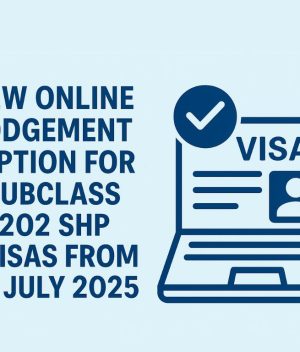Student Visa Refusal? Here’s What You Can Do Next
Receiving a visa refusal is a tough experience, especially if you’ve invested a lot of time and effort in your application. However, a refusal doesn’t necessarily mean the end of your journey to Australia. There are steps you can take to address the refusal and improve your chances of success in the future. In this blog, we guide you through what to do next after a visa refusal, with practical tips tailored for students, professionals, and applicants from countries like Nepal, India, Pakistan, and others applying for Australian visas.
Common Reasons for Student Visa Refusal
Before exploring your next steps, it’s important to understand why your visa might have been refused. Some common reasons include:
❌ Incomplete Documentation: Not providing all required documents.
❌ Genuine Student (GS) Criteria Issues: Especially for student visas, if your intent and commitment to study in Australia aren’t clearly demonstrated.
❌ Financial Evidence: Inadequate proof of funds to support your stay in Australia.
❌ Health and Character Concerns: Failing to meet Australia’s stringent health and character standards.
❌ Inconsistent Information: Providing conflicting or incorrect information in your application.
What You Can Do After Student Visa Refusal?
1. Review the Refusal Notice Carefully
Start by carefully reviewing the refusal notice issued by the Department of Home Affairs. This document details the reasons behind the refusal, helping you understand the specific areas of concern. This knowledge is crucial for deciding your next steps, whether it’s submitting an appeal or reapplying.
2. Appeal to the Administrative Review Tribunal (ART)
In many cases, you may have the right to appeal the decision to the Administrative Review Tribunal (ART). This process can potentially overturn the refusal if you present a strong enough case. Keep in mind that the appeal process is time-sensitive, so you must act quickly.
Our team at Emigrate Lawyers specializes in ART appeals, helping applicants from Australia, Nepal, India, and other countries strengthen their cases. We guide you through submitting additional evidence, addressing the reasons for refusal, and representing you at the tribunal.
3. Address Issues in Your Application
If your visa refusal was due to missing documentation, inconsistent information, or financial issues, you might be able to reapply with a stronger application. Expert guidance can be invaluable in this process.
Our experienced migration consultants ensure your documents are complete and compliant with Australia’s visa requirements, whether you’re applying for a student visa, skilled visa, or family sponsorship visa.
4. Strengthen Your Genuine Student (GS) Criteria Case
For student visa applicants, failing to meet the Genuine Student (GS) Criteria is a common issue. To improve your case, gather evidence that demonstrates your genuine intent to study in Australia, such as your academic history, the relevance of your chosen course to your career goals, and a clear plan for your studies.
At Emigrate Lawyers, we have successfully helped students from countries like Nepal, India, Sri Lanka, Bangladesh, and beyond strengthen their GS cases, ensuring stronger appeals or reapplications.
Ministerial Direction No.108 and GS Criteria Assesment
Home Country Circumstances: Economic, political, and civil conditions, as well as personal and family ties.
Potential Circumstances in Australia: Personal connections, knowledge of living in Australia, and any signs of using the student visa as a means to remain in Australia permanently.
Value of the Course: Its alignment with your educational background and professional aspirations.
Immigration History: Past visa applications and travel history.
Department of Home Affairs weighs these factors collectively to determine if you meet the GS criteria. Ensure your application provides strong, relevant evidence to maximize your chances of success. At Emigrate Lawyers, we specialize in guiding Nepali and other international students through every step of their visa applications, from documentation to appeals. Contact us today to learn how we can support your journey to study in Australia!





